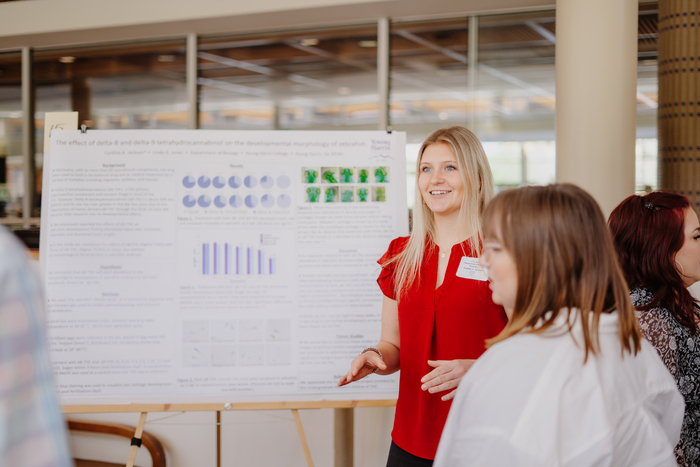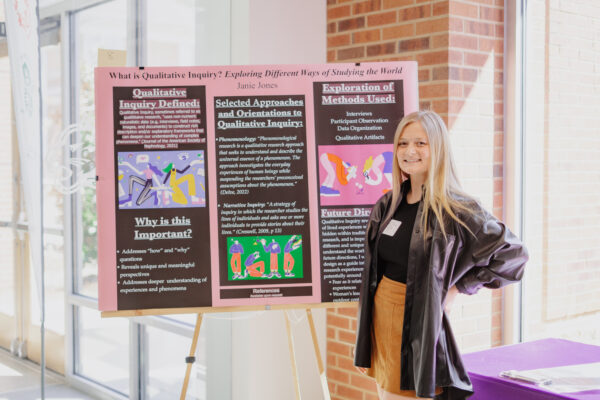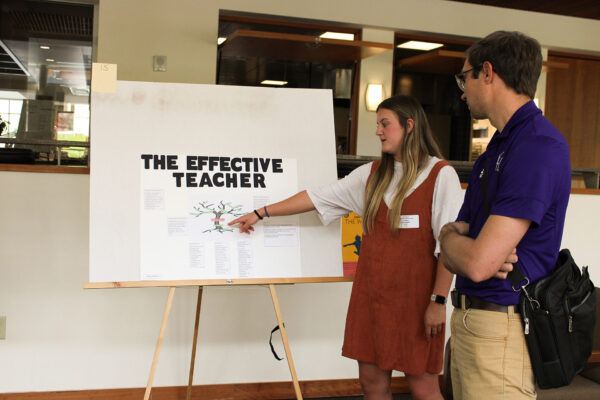
Research
At Young Harris College, undergraduate research takes center stage, fostering innovation and deep academic exploration for our students.
Undergraduate Research for the Common Good program
Through the Undergraduate Research for the Common Good program, students engage in meaningful research under the guidance of faculty members, enhancing their education by fostering critical thinking, communication, and discipline-specific skills.
More about Undergraduate Research
Tackling global issues at the local level
Through undergraduate research, students address pressing community issues, enhancing their academic success and cultivating resilience, problem-solving skills, and self-confidence.
Key components of the Undergraduate Research for the Common Good program
The program encompasses elements like course-based research experiences (CUREs), mentored-research experiences (MREs), Undergraduate Research Day, the YHC Undergraduate Research Journal, and Undergraduate Research Scholars.
Undergraduate Research Journal
Our annual Undergraduate Research Journal showcases interdisciplinary student and faculty collaborations, highlighting diverse talents, achievements, and insights relevant to local, regional, and global challenges.

Undergraduate Research Day
Since 2013, YHC’s annual Undergraduate Research Day showcases diverse faculty and student research from various disciplines, emphasizing the college’s commitment to extending learning beyond the classroom. The day includes both oral and poster presentations covering a wide range of topics.
Independent research and partnerships with peers and faculty help students improve their intellectual inquiry and problem-solving skills, making YHC graduates more prepared for graduate or professional school, as well as competitive job markets.
number of undergraduate research projects
Collaborate with renowned faculty
Course-based research experiences (CUREs) immerse students in dynamic, personalized learning. Characterized by collaboration and iterative problem-solving, CUREs cultivate foundational research skills and prepare students for deeper, faculty-mentored projects.
Mentored research experiences (MREs) foster impactful mentoring relationships, proven to enhance student motivation, engagement, and overall success. YHC’s low student-to-faculty ratio allows for meaningful connections between students and their professors, as they work together on diverse research opportunities across all departments.
Examples of previous MREs:
INFLUENCE OF INTRODUCTIONS OF ALABAMA BASS (MICROPTERUS HENSHALLI) ON BLACK BASS GROWTH RATES IN NORTH GEORGIA RESERVOIRS
Major: BiologyTHE CONVERSION OF KUDZU INTO ETHANOL FOR USE AS A BIOFUEL
Major: ChemistryINVESTIGATION OF MEDIA COVERAGE OF THE MIGRANT CHILDREN CRISIS AT THE US-MEXICO BORDER
Major: Communication Studies
Research grant awards
Faculty can receive awards up to $1,000 to support the development and implementation of a CURE and $500 to support the development and implementation of an MRE. This can include supplies, equipment, field trip costs, and support for students to present research at conferences.
Application deadlines
Applications for CURE and MRE grant awards are due on the first Monday of August for the fall semester and on the first Monday of January for the spring semester. Completed applications should be sent to the Director of Undergraduate Research.

Undergraduate Research Scholars
Outstanding students with notable research endeavors, leadership skills, and contributions to knowledge can be designated as Undergraduate Research Scholars, with honorees chosen through a faculty-led nomination and review process.

